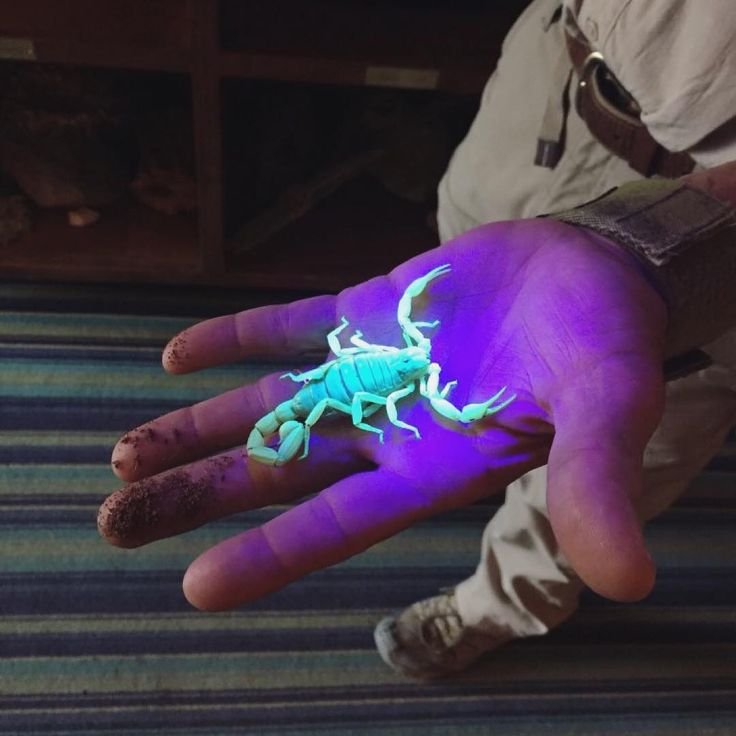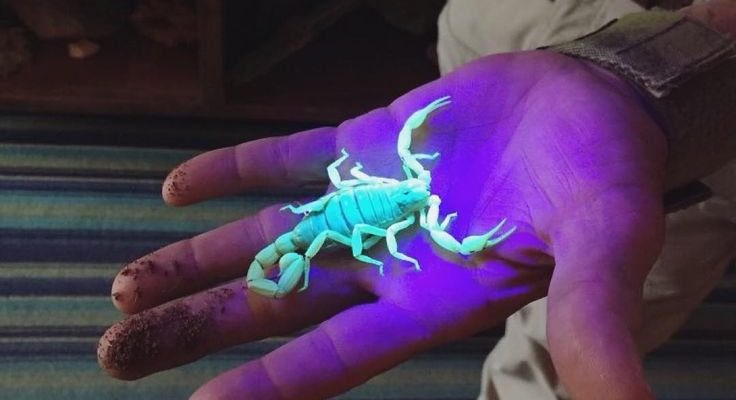
When scorpions glow, it’s not just a party trick. It’s a fascinating feature that has sparked curiosity among scientists and nature enthusiasts alike. This phenomenon is like the scorpion’s own unique fingerprint, and understanding it might just change your perspective on these critters. Let’s explore the reasons behind this glow, what it means for scorpions, and answer the big question: do all scorpions really shine under UV light?
What Causes Scorpions to Glow?
Here’s the thing: scorpions glow due to a substance found in their exoskeleton. When exposed to UV light, this substance, called *beta-carboline*, absorbs the light and re-emits it as a blue-green glow. It’s almost like wearing a neon outfit in a dark club! This glow helps them in several ways, including navigating their environment and avoiding predators.
But it’s not just about looking cool. The glow can also serve as a sort of protective mechanism. For instance, the fluorescent properties help break down harmful UV rays, offering a little extra shield for these small creatures. They’re like tiny superheroes, relying on their special glow to survive in the wild.
Interestingly, researchers have noticed that the glow intensity can vary depending on the species, age, and even the geographic location of the scorpion. Some glow brilliantly, while others barely emit any light at all. This adds a layer of complexity to our understanding of their glowing abilities.
Do All Scorpions Glow?
So, do all scorpions glow in the dark? The answer, unfortunately, is no. While most scorpions exhibit some level of fluorescence, not every species is a glowing wonder. About 30 out of the more than 1,500 known species have been documented to glow under UV light. That’s still a significant number, but it means that if you encounter a scorpion that doesn’t glow, it doesn’t mean it’s broken; it just might be one of the non-fluorescent varieties.
The reasons behind why some scorpions glow and others don’t are still being studied. Scientists speculate that it could be due to evolutionary traits that have helped certain species thrive in their habitats. For example, scorpions that glow might have better camouflage when illuminated at night, giving them an edge over their non-glowing counterparts.
How UV Light Affects Scorpions
You might be wondering, what role does UV light play in the lives of scorpions? For many creatures, UV light is just a part of the environment, but for scorpions, it’s a crucial factor. Their ability to glow under UV light can be linked to their hunting and mating behaviors.
When hunting, scorpions use their fluorescent glow to attract prey. Many insects are naturally attracted to UV light, so when the scorpion glows, it might catch the eye of a curious bug looking for a night out. It’s like setting a trap with a neon sign saying, “Come here, dinner!”
During mating season, the glow also plays a role. Scorpions can communicate with each other through subtle displays of their fluorescence. Imagine a romantic dance party where the glowing scorpions show off to impress potential mates!
Why Do Scorpions Evolve to Glow?
Evolution is at the heart of why scorpions have developed this glowing trait. The adaptation likely evolved for several reasons, primarily survival. The glow acts as both a lure for prey and a warning signal to potential predators.
Consider this: if a predator sees a glowing scorpion, it might think, “Whoa, that’s weird!” and decide to steer clear. This glow can serve as a signal that the scorpion might be toxic or unappetizing. It’s part of nature’s way of promoting survival through communication.
Additionally, the ability to glow might also enhance their nighttime activities. Scorpions are primarily nocturnal creatures, meaning they do most of their hunting and interacting when it’s dark. The glow provides a unique advantage, allowing them to navigate their environment and spot the competition—or a tasty meal.
How to See Scorpions Glow
If you’re eager to see this glow in action, it’s easier than you might think! All you need is a black light or UV flashlight. Here’s how to go about it:
- Find a good spot: Look in areas where scorpions are known to inhabit, like under rocks, logs, or in deserts, especially late at night.
- Turn on the black light: Shine the black light over the ground where you suspect scorpions may be lurking.
- Look for the glow: Keep an eye out for those glowing blue-green critters! They might pop out against the dark background like tiny neon signs.
Just remember to be cautious. While scorpions can look cool glowing in the dark, some species can deliver a painful sting. Always handle with care!
Scorpions and Their Ecosystem
Understanding the glow of scorpions not only adds to our knowledge of these fascinating creatures but also sheds light on their role in the ecosystem. Scorpions are crucial players in the food web, acting as both predators and prey.
As hunters, they help manage insect populations, keeping them in check. Without scorpions, the balance of their ecosystems could be disrupted, leading to overpopulation of certain insects, which could then harm plant life.
On the flip side, scorpions are also a food source for various animals, like birds, mammals, and reptiles. The glow can play a part in these interactions, influencing predator-prey dynamics in the wild.
Scorpions are remarkable creatures—part predator, part prey, and now part glowing mystery. While not all of them light up in the dark, the ones that do add a touch of magic to the night. Their fluorescence helps them survive and thrive, showcasing the wonders of nature in action.
Next time you find yourself in a dark area with a UV light, remember: you’re not just hunting for glowing insects; you’re on the lookout for an extraordinary piece of the ecosystem puzzle. Scorpions, with their glowing capabilities, remind us how intricate and beautiful nature can be—even in the dark!

